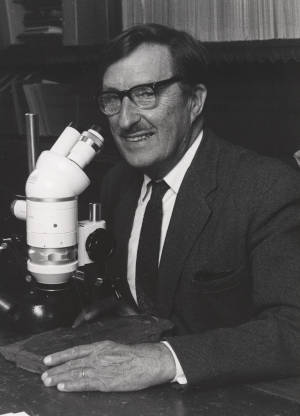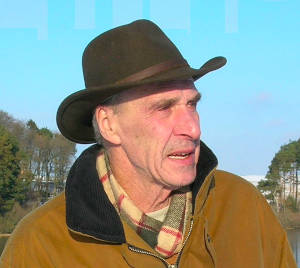The Association offers multiple awards each year, in honour of four donors, to fund palaeontological research, travel and fieldwork; these are integrated together under the Small Grants Scheme. These grants are open to any member of the Association, although preference is given to students, early career researchers, and members of the Association who are retired.
- Sylvester-Bradley Awards: Multiple awards up to £1500 GBP each, for palaeontological research.
- Whittington Award: An award up to £1500 GBP for a project which is normally based on museum collections.
- Stan Wood Award: A maximum of two awards of up to £1500 GBP for projects in vertebrate palaeontology, and ideally involving fieldwork and fossil collecting.
There is one online application form with a deadline of 1st November. The successful applications will be reported at the December Council meeting, and at this meeting Council will decide on the allocation of the awards based upon the nature of the project made in the application. The awards will be announced at the AGM, and funds will normally be available from 1st January.
Successful applicants will be required to produce a final project report that will be published in the Palaeontological Association Newsletter, and are asked to consider the Association’s meetings and publications as media for conveying the research results.
Further details and a full list of terms and conditions for the Small Grants Scheme can be found below. Enquiries may be made to the Secretary (secretary@palass.org).
Before applying, applicants must first read the Terms and Conditions for Small Grants Awards (below).
Terms and Conditions
Terms and conditions for Small Grants Scheme applications (comprising the Sylvester Bradley Awards, the Whittington Award, and the Stan Wood Award) are as follows. Applicants need not specify which award they are applying for; this will be decided by the Association, as appropriate.
- Applicants should be members of the Association.
- Proposals must align with the charitable aims of the Association and comply fully with the Instructions to Applicants.
- The Association offers multiple awards each year, in honour of three donors, to fund palaeontological research, travel and fieldwork; these are integrated together as the Small Grants Scheme. Applicants need not specify which award they are applying for as this will be decided by the committee following assessment of all proposals.
- These grants are open to any member of the Association, although preference is given to students, early career researchers, and retired members. Those in one of these categories should indicate this on the application form.
An ECR meets all the following criteria:
(1) has less than ten years experience after PhD graduation (adjusted pro rata for any periods where an individual was employed in a position where research was not a significant part of the role);
(2) does not hold an open-ended/permanent contract;
(3) has not been the PI or equivalent on a research project. - Each application should be accompanied by one reference. Upon submission of an application, the referee will automatically be emailed a link to a web form requesting a short commentary on the applicant’s capabilities to undertake the research proposed. Applicants are responsible for ensuring that this is received by the deadline.
- Awards are made to assist palaeontological research (travel, visits to museums, fieldwork, analytical costs, etc.), with each award having a maximum value of £1,500.
- Grants are not made to attend meetings.
- Grants will not cover salary costs.
- A strong case needs to be made for the purchase of non-specialist equipment (e.g. cameras and lenses, computers). The expectation is that such underpinning equipment is widely available as part of well-found laboratory facilities.
- The total project should be achievable within the sum requested. The project should not be a component of a larger project and this should be made clear in the application (see also 11, below).
- If applications to other bodies for funding the same project are successful, then payments will not be granted, or will be withheld.
- If an application is made for funding that relates to a PhD or a MSc, then a strong case should be made as to why funding is required above that made available to support the PhD/MSc project, and why the proposed research project was not included when the project was designed.
- We do not fund credit-bearing elements of BSc/MSci/MSc projects.
- Funding will not be made retrospectively.
- In normal circumstances awards are made to single individuals, and a case must be made for funding of people other than the applicant.
- Please see the Palaeontological Association Grant Ethics and Conditions for elligible costs, and details of research ethics.
- In planning research and recognising contribution and authorship, we strongly encourage investigators to recruit, and involve at all stages of the research and publication process, suitably qualified/experienced local researchers, especially where specimens, materials and/or data are from low-income or middle-income countries. Please consult the Palaeontological Association Publication Policies and Ethics page.
Assessment of Proposals
Projects are assessed by a panel of five Council members. Proposals that do not meet the criteria above are not considered further. The remaining applications are scored as A, B, or C by each panel member separately, based on the Small Grants Scheme Criteria for Assessment.
Projects scored as A or C by at least four panel members are awarded this as their final score; all others are scored B. Funding is awarded by a series of random draws. At each step (1-5), the next category is added to the pot; no projects are removed. The draw ceases when the monies available are exhausted.
- A-graded applications from students, early career researchers, and retired members are awarded funding. We would normally expect to fund all these applications. If, exceptionally, the amount required to fund A-graded applications at step 1 exceeds the funding available, a random draw will be used to select projects, and the allocation process will not proceed to step 2.
- All other A-graded applications are considered for allocation of funding. If the amount required to fund all these applications exceeds the funding available, a random draw will be used to select projects, and the allocation process comes to an end. If funding remains, step 3 is invoked.
- B-graded applications from students, early career researchers, and retired members are considered for allocation of funding. If the amount required to fund all these applications exceeds the funding available, a random draw will be used to select projects, and the allocation process comes to an end. If funding remains, step 4 is invoked.
- All other B graded applications are allocated funding. If the amount required to fund all these applications exceeds the funding available, a random draw will be used to select projects. The allocation process comes to an end.
Deadline
1st November 23:59 GMT.
Note: On submission of the application form, an automated email will be sent to your referee requesting a reference in support of this application. This reference needs to be submitted by the deadline shown. As such, please submit your application with enough time to allow your referee to provide their reference. Applications which are not complete (including reference) by the deadline will not be considered.
Online Application
Applications must be submitted electronically. You will be asked to provide the information outlined below. There is a link to the application form at the bottom of this page.
Online Submission
Small Grants Scheme
These awards all exist due to generous bequests from the people after whom they are named. Further funds are added to the scheme each year thanks to donations from the membership.
Sylvester-Bradley Awards

Image courtesy of Rowan Sylvester-Bradley
| Peter Sylvester-Bradley (1913-1978) was Professor of Geology at the University of Leicester, UK, and is known for his work on fossil oysters and ostracods. Sylvester-Bradley, a free-spirited, original thinker, graduated with a third from Reading, overcame bouts of ill health and spent time lecturing at an agricultural college. During WWII he was based in London, working on ostracods at the British Museum by day and as an air raid warden at night, before later joining the navy. After the war he was successively appointed Assistant Lecturer and Lecturer in Geology at the University of Sheffield, prior to his appointment at Leicester. We are grateful for the support of Peter’s wife, Joan, in ensuring the continuation of this award. |
Whittington Award

Harry Whittington (Harry Whittington n.d, Sedgwick Museum of Earth Sciences, Ref. WHTN).
| Harry Whittington (1916-2010) was successively Professor of Palaeontology at Harvard, USA, and the Woodwardian Professor of Geology at the University of Cambridge, UK. Whittington was the world's leading authority on Ordovician trilobites, pioneering their use in palaeobiogeography. Whittington also made fundamental contributions to the study of fossils of the Burgess Shale and other Cambrian faunas, which revolutionised our understanding of the 'Cambrian Explosion', the origin of all the major animal body plans. |
Stan Wood Award

Stan Wood, reproduced with kind permission from Maggie Wood
| A self-taught fossil collector, during his remarkable life Stan Wood (1939-2012) provided palaeontology with an abundance and variety of new Carboniferous fossils, the like of which had not been collected since Victorian times. He discovered 29 new species, including what many have surmised may be the world’s earliest reptile. In 1984 he discovered a rich source of fossils dating from the fossil-poor Romer's Gap, a 15-million-year interval at the beginning of the Carboniferous period. We are grateful for the support of both Stan’s wife, Maggie, and Matt Dale at Mr Wood’s Fossils in Edinburgh in ensuring the continuation of this award. |
